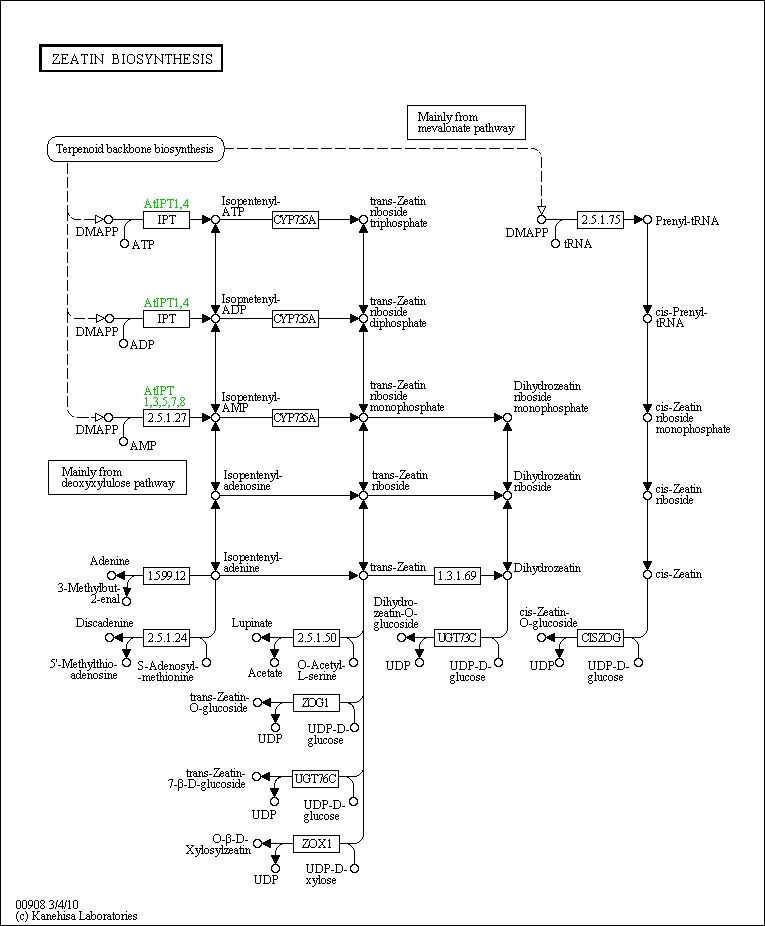Zeatin Biosynthesis
Description: Zeatin, being a member of the cytokinin family, is a type of phytohormones responsible for essential physiological roles in plants. This includes the release of lateral buds from apical dominance, the promotion of cell division, and the delay of senescence. Despite extensive study on cytokinins, there remains ambiguity in how different categories of cytokinins perform specific roles in plant growth.
Many of the cytokinins are adenine-type, where the N6 position of adenine is substituted with an isoprenoid, such as in cis-zeatin, or with an aromatic side chain, such as in kinetin. Cis-zeatin is the most abundant form of cytokinin in plant cytoplasmic prenylated-tRNAs, but regardless, are low in activity and their physiological relevance remains is unclear. Instead, trans-hydroxylated N6 side-chain are more biologically relevant cytokinins.
Zeatin can be synthesized in two different pathways: the AMP pathway and the tRNA pathway. After the discovery of a zeatin /cis-trans/ isomerase, it was hypothesized that /cis/-type cytokinins can contribute in the synthesis of /trans-/type cytokinins. In /Arabidopsis thaliana/, the /trans/-type cytokinins are synthesized from DMAPP precursors that orginate from the plastidic methylerythritol phosphate pathway. C/is/-type cytokinins are synthesized throught prenylation of tRNA in the cytosol by means of DMAPP precursors originating from the cytosolic mevalonate pathway.

Related BMRB Molecules
- ADP
- AMP
- ATP
- Acetic Acid
- O-Acetyl-L-Serine
- Adenine
- S-adenosyl-L-methionine
- 3-methylcrotonaldehyde
- UDP
For complete information about pathway, see KEGG [map00908]
